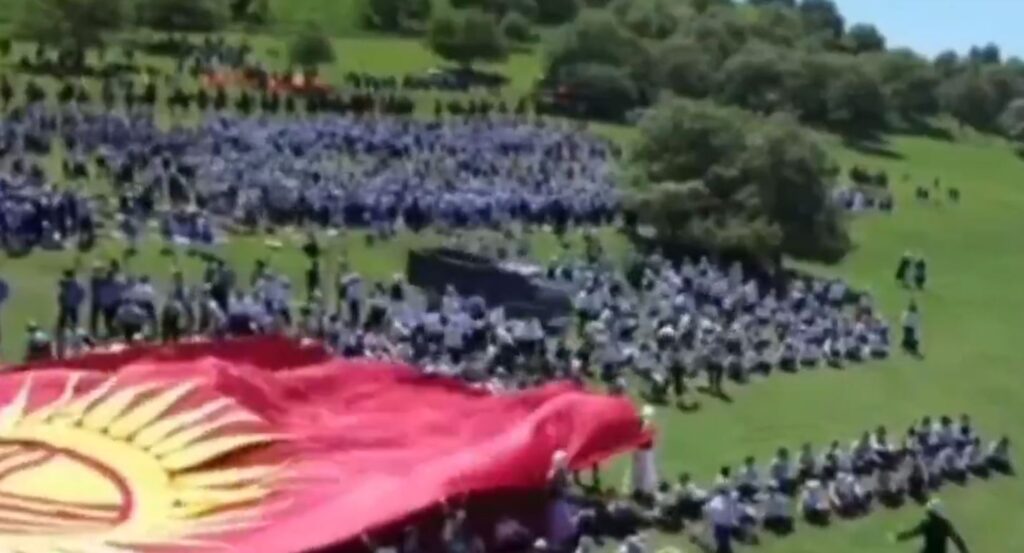Kyrgyz Authorities Believe Negligence Caused Truck to Hit Students
Kyrgyzstan’s president has ordered the transfer by plane of ten seriously injured children to Bishkek for medical treatment after a truck hit students who had assembled on a hillside for a storytelling competition, Kyrgyz media reported on Friday. About 30 people were injured in the incident in the Suzak district, Jalal-Abad region on Thursday, prompting President Sadyr Japarov to form a commission to investigate what authorities believe was an act of negligence. The driver of the truck was arrested, though early reports said the truck was empty when it rolled through the crowd of students. Video captured the moment as young people, some standing in formation, scattered or were caught in the path of the vehicle. “The accident was caused by negligence and non-compliance with safety rules,” said Kamchybek Tashiev, head of the State Committee for National Security and deputy chairman of the Cabinet of Ministers. “There were many shortcomings in organizational work. Organizers should take into account all safety rules which were necessary. For example, special places for cars should not be allowed into the crowded area. This kind of accident is caused by neglecting such small things," Tashiev said. Kabar, the state-run news agency, quoted him as saying there was no indication that terrorism was involved.



